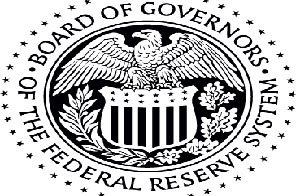Fed official: slow recovery to start in late 2009
SAN FRANCISCO: The recession is likely to end later in 2009, ushering in a "frustratingly slow" recovery marked by continued high unemployment, a top Federal Reserve official said on Tuesday.
Janet Yellen, president of the San Francisco Fed, looked for inflation to stay low for several years, and hinted that the central bank should be in no hurry to raise interest rates even once growth turns positive.
"I am not optimistic that the economy will spring back to normal anytime soon," Yellen told the Commonwealth Club of California in San Francisco.
The U.S. jobless rate is likely to rise from its current level, and it could take several years to return to full employment, Yellen said -- a period that could intensify downward pressure on wages and prices.
In her first extended remarks on the economy since early May, Yellen said that undesirably low inflation was the biggest issue on the medium-term horizon.
"I'll put my cards on the table right away. I think the predominant risk is that inflation will be too low, not too high, over the next several years," she said.
"I expect core inflation will dip to about 1 percent over the next year and remain below 2 percent for several years."
Further, "if the economy fails to recover soon, it is conceivable that this very low inflation could turn into outright deflation." Still, Yellen said the risk of a "devastating spiral" of deflation was unlikely.
Yellen is a voting member of the Federal Open Market Committee in 2009.
The FOMC lowered its benchmark lending rate to a range of zero to 0.25 percent in December in an attempt to shore up the economy.
Financial markets assess a reasonable chance the Fed will start to raise rates by late 2009 or early 2010, but seem to be at odds with Yellen's focus on deflation.
The Fed "certainly has the means to unwind the stimulus when the time is right," she said, adding that many of the bank's special credit programs are tapering off as market conditions improve.
Even so, "I'm more concerned that we will be tempted to tighten policy too soon, thereby aborting recovery," Yellen said, citing the notorious blunders of the Fed committed in the 1930s.
"I do not believe that there is a real threat of high inflation in the current situation."
She said financial markets continued to show more confidence after a time when the Fed's programs succeeded "in averting a full-blown meltdown."
"Markets are in much better shape today than we ever would have dreamed six months ago. Investors have gone from disregarding risk, to being paralyzed by it, to once again being willing to take on a reasonable bit."
Yellen said positives for the economy as it struggles to exit a "painful recession" will be the need to replace "old and broken down goods" from autos to computers to appliances. The housing sector "will eventually rise from the ashes" too, she said.
Still, Yellen noted a string of "cautionary points" for the recovery, from rising mortgage interests and higher crude oil prices to weakness in the commercial real estate sector.
"I also think that a massive shift in consumer behavior is under way -- one that will produce great benefits in the long run but slow our recovery in the short term."
Americans who have seen trillions of dollars in wealth evaporate have been "scared straight" and are starting to save more.
"Such a rediscovery of thrift means fewer sales at the mall, and fewer jobs on assembly lines and store counters," Yellen said.






